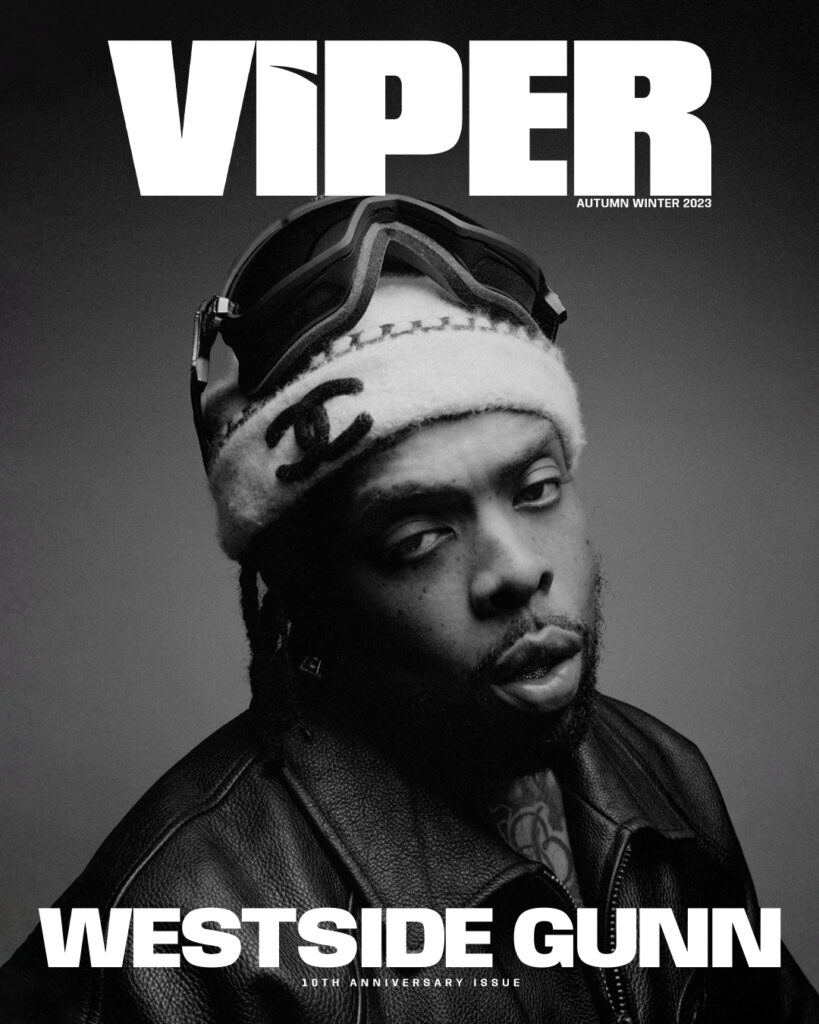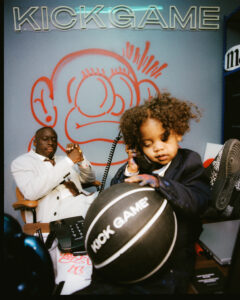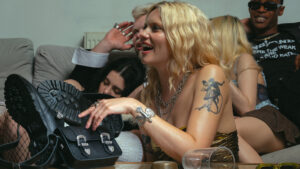If hip hop was edging its way into the living room of mainstream America by the early nineties, then Yo! MTV RAPS Unplugged kicked the door wide open. As Video DJ Mark Goodman had once explained to a stupefied David Bowie, the network was a “rock & roll station,” not set up with the intention of featuring a generation of trailblazing black artists. But when golden-age talents like De La Soul, MC Lyte, A Tribe Called Quest and LL Cool J graced MTV Unplugged in 1991 for its first ever acoustic rap show – a decade after radio stars had been declared dead on arrival – the response was like a sledgehammer blow to the station’s conventions.
You know the format. First airing in 1989, Unplugged saw musicians ditch their electronic instruments and strip their arrangements down to the bare bones. Eric Clapton’s career got a re-up in 1992 when he took heavy guitar workout ‘Layla’ and flipped it into an rickety acoustic blues number. And one of the most lasting images of MTV’s heyday is the sight of Nirvana, surrounded by candles and flowers, strumming acoustic guitars. Their 1993 cover of Bowie’s ‘The Man Who Sold The World The World’ was like a full-on jack move.
But how could the format accommodate the beats, rhymes and life of early nineties rap music? Two turntables and a microphone were not an option —for rappers to take to the Unplugged stage, they’d have to reimagine their beats on instruments traditionally associated with folk, country and rock. For the suits at MTV, it was too much to comprehend.
But Moses Edinborough was a maverick. Then 26 years old, he had been recently promoted to a producer’s position on Yo! MTV Raps, and the St Thomas native was hungry, with the assurance of youth on his side. Yet the genesis of Yo! MTV Raps Unplugged came from something as simple as a wager, when Edinborough got into a dust-up with an executive from Epic Records who argued that no rapper could perform with a live band. “Rakim and Kool G Rap could,” asserted Edinborough, a statement that would go down in rap history.
“He laughed in my face,” Edinborough remembers almost 25 years later. “So I called him out. I said, ‘Let’s bet pay checks’. And that was it, he had to put up or shut up. But so did I. And at the time I was making about $1,100 a week and the A&R white guy [made] $3,600. It was a nice pay out for me.”
Edinborough turned in a treatment to Unplugged producer Joel Gallen and MTV bigwig Doug Herzog just a few days later. And then he waited. He waited days, which turned into weeks and, eventually, months. For Moses, the silence coming from the station’s senior guys was deafening. “I would give Joel and Doug ‘the look’ in the halls and they would walk the other way.”
The proposal eventually received an official rejection. It was a soft backhand but a smack-down nonetheless, and work at the station went on. But a lifeline was to come six months later when Gallen burst into Edinborough’s office without warning. The look on his face was of pure exasperation. As fate would have it, Aerosmith, who had brought rap to so many new ears with their Run-D.M.C. collaboration ‘Walk This Way’, were unwittingly about to solidify their place in hip hop history. “Aerosmith backed out of doing Unplugged,” said Joel. “We have all this money spent on a stage, we built a set, hired a crew and in four days we’re fucked if we can’t fill the space! And unless you can make your Rapper Unplugged thing happen, we’re going to lose lots of money!”
Moses’s dream project was on. But Gallen was about to drop a bombshell. “Can you make it happen by Monday?” he asked. The weekend was already upon them. Edinborough knew the rap community was pretty excited about doing anything at MTV, but four days? “The fuckers,” he thought.
With no time to strategize, Edinborough went straight to work with Sheri Howell from MTV’s talent relations department and together the pair sketched out their artist wish list. Yo! producer Todd 1 suggested Brooklynite MC Lyte, and the crew figured the sample-heavy style of De La Soul and A Tribe Called Quest would easily translate into a live music format and give the New York-filmed show an authentic NYC vibe. But they still wanted someone with star quality to anchor the whole thing. “The lineup was coming together but I knew we didn’t have a star act,” says Moses. “This is how I phrased it: ‘We need the Elvis or Michael [Jackson] of Rap’.”
The crew were surprised that Rakim was unavailable, and MTV didn’t want anyone too “gangster,” meaning Kool G Rap was out. There was also worries from upstairs that KRS-One, Chuck D or Kool Moe D didn’t have enough star power and The Fresh Prince wasn’t ready for Unplugged either.
But Moses and Sheri were about to get lucky. At the very same time they were sweating on their headline attraction at the MTV offices on Times Square, LL Cool J was making an on-air appearance with host Downtown Julie Brown. When the duo found out, they hopped a cab and raced to Unitel Studios on West 57 Street to meet the rising King of Queens, Todd Smith.
This is an extract from the Spring Summer 16 Issue of Viper Magazine. Read more from the magazine here. Buy physical and digital copies here.
Illustration by Mariah Greenwood
Words by Dean Van Nguyen




